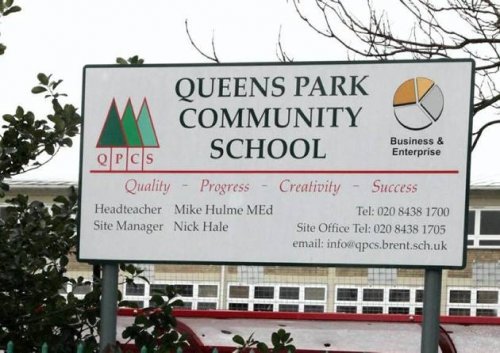Rensair stages live air purification trial at QPCS school

Rensair, supplier of portable, hospital-grade air purification to the education sector, is staging a real-world trial at Queen’s Park Community School (QPCS) in Brent, London. Anyone with an interest in making schools safe can access the metrics on a real-time basis to follow the trial results.
The pandemic is having a severe impact on education and, since natural ventilation is not a viable option during winter, schools are turning their attention towards air purifiers to stem viral transmission. QPCS agreed to stage the trial as part of a risk mitigation strategy to prevent further disruption to the school curriculum. The objective is to test the effectiveness of Rensair’s unique, patented HEPA/UVC technology in removing viral particulates and to share the learning with other educational establishments.
“The pandemic has taken its toll on the school”, said Angela Galloway, Business Manager at QPCS. “For the sake of the students, we need practical measures to ensure that any new Covid variants that cause further outbreaks do not jeopardise their education again.”
The WHO, UK SAGE, HSE and CIBSE recommend an air change rate of 10 litres per person per second to preserve a healthy indoor atmosphere. If that is not possible using outdoor air, then the recommendation is to use air purifiers to achieve the desired level of clean air.
The QPCS trial results to date are replicating those achieved in independent laboratory tests, with multiple sensors in each classroom all registering that particulate levels are averaging negligible levels under 2 ug/m3. To put that into context, the EU sets the threshold at 20 ug/m3 (US has 35ug/m3), whilst the Taskforce for Lung Health suggests the target should be significantly lower at 10ug/m3.
“People can be sceptical about the ability to replicate exemplary lab results in a real-world environment, and with good reason”, said Edward Ballsdon, Co-founder and Managing Director at Rensair. “So we are being totally transparent with this trial, providing access to everyone and enabling people to engage with the data and ask questions.”
As part of a government initiative, thirty primary schools in Bradford are trialling air purifiers using either HEPA or UVC technologies. The Rensair approach uses both technologies to maximum effect, using HEPA to trap particles and UVC to carry out an important sterilisation task to ensure the safe operation and ongoing maintenance of the unit.
“This trial preempts the outcome from the Bradford trial”, added Ballsdon. “In theory, the cubic meterage and high occupancy of the trial classrooms demand three air purifiers per classroom to achieve the WHO’s recommended air change rate. In practice, just one single Rensair air purifier per classroom is managing to keep particulate levels down to almost zero. That shows that a HEPA unit with the right design and specifications doesn’t just do the job, but punches above its weight.”
Before the trial started, classroom windows were open and students and teachers were wearing coats, hats and gloves during lessons. Now, with air purification installed and windows closed, the room temperature is a comfortable average of 21C, far more conducive to learning. The high CO2 level, which is not in itself harmful, can have an impact on concentration and cognitive skills and is resolved by opening windows for a few minutes between lessons to aerate and introduce oxygen.
Liam Greenhalgh, Head of Science at QPCS, is overseeing the trial: “There is ample scientific evidence proving the efficacy of Rensair’s unique combination of HEPA and UVC in trapping and inactivating a minimum of 99.97% of airborne particulate matter. We also know that the technology is safe, with no harmful by-products, unlike some methods that use chemical reactions. What this trial puts beyond doubt is the fact that the powerful centrifugal fan and 360 degree air circulation really work, cleaning the air throughout the entire classroom and not just around the unit itself.”
The live trial can be accessed at: https://rensair.com/blog/follow-our-live-school-trial/
